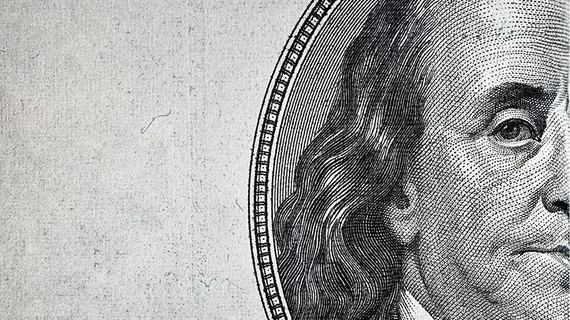Insurance company ‘profiteering’ could have ‘devastating impact’ on physicians, ACR warns HHS
Insurance company “profiteering” could have a “devastating impact” on physicians, societies representing radiologists, anesthesiologists and emergency medicine specialists warned July 10.
Their “grave concern” stems from the “shared savings” business practice used by prominent insurance companies and their partners. Such programs allow third-party administrators of group health plans to “confound” the intents and purposes of the No Surprises Act, society leaders warned the departments of Labor, Treasury and HHS.
“More specifically, [shared savings programs] are explicitly undermining participating physician networks and incentivize [third party administrators] to low-ball physician payments to maximize TPA profits,” the American College of Radiology, American Society of Anesthesiologists and American College of Emergency Physicians wrote. “We believe this behavior is the single largest factor in the high volume of [No Surprises Act] arbitration cases. We are concerned that left unchecked, insurance company profiteering from this practice could have a devastating impact on physicians across the country—most particularly physicians who work in small- and medium-sized community-based practices.”
Alan H. Matsumoto, MD, ACR board chair, and colleagues note that shared savings programs can take various forms. Most commonly, they involve a third-party administrator charging the employer a fee based on a percentage of the “savings” achieved when processing out-of-network claims. This fee is in addition to the traditional charges assessed by the self-funded plans for processing claims. Savings are typically calculated based on the difference between an out-of-network physician’s billed charge and the amount the plan ultimately pays the doctor.
“This ‘savings’ amount is fictious because the plan (via the TPA) rarely, if ever, pays the out-of-network physician charge,” the societies wrote. “Since there is no agreed upon rate when care is provided out-of-network, the TPA can drive higher fees from the employer by arbitrarily lowering the amount actually paid to the out-of-network physician. The result is a perverse incentive to keep physicians out-of-network and low-ball claims in order to line the pockets of big insurer companies with potentially billions in profits.”
Matsumoto and colleagues pointed to a recent investigation from the New York Times as proof of this practice. They believe this is having the biggest impact on smaller practices in radiology, anesthesiology and emergency medicine, which don’t have the resources nor the time to fight insurers.
“If left unchecked, we are concerned about our members’ long-term viability and an end result, which will limit patient access to needed healthcare services,” the letter closed. “ACEP, ACR and ASA believe that the departments must take immediate action to address the impact these [shared savings programs] have on self-funded employer plans and by extension the physicians who serve them, including new regulations. Such regulations would, at a minimum, PROHIBIT [third part administrators] from applying [shared savings programs] to [No Surprises Act]-eligible claims. Without intervention, health insurance companies will continue to leverage the NSA to pillage employer and employee healthcare funds and jeopardize access to care in pursuit of billions of dollars in profits.”
The letter comes after recently released data showed that radiologists and other physicians are prevailing in nearly 4 of 5 NSA payment disputes. CMS said the top three initiating parties in 2023 included SCP Health, Team Health and imaging industry giant Radiology Partners, altogether covering 58% of disputes.
Rich Whitney, MBA, chairman and CEO of Rad Partners, shared the letter on social media Sunday.
“Kudos to American College of Emergency Physicians, American Society of Anesthesiologists and American College of Radiology for bringing a spotlight to the issue of insurers taking advantage of the NSA and shared savings arrangements,” he wrote July 14. “Was this the plan all along, back to the insurer-funded Yale university research that spawned the No Surprises Act? Keep asking questions…”

